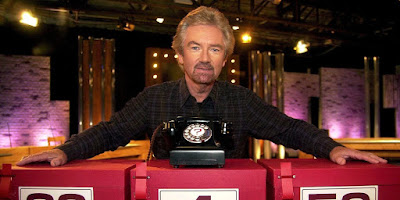Deal or No Deal? Edmonds’ Case Becomes a Test for Lloyds’ Resolve
Today’s short post looks at an issue which was covered in
the very first few posts
here in Financial Regulation Matters,
which was the HBOS fraud scandal that saw a number of executives imprisoned for
their crimes against small-medium enterprises (SMEs). Furthermore, we have also discussed
in Financial Regulation Matters the development
of the compensation fund that Lloyds has set up to compensate the victims of
these crimes, and in this post the focus will be on recent developments with
this story.
As we know, Lloyds has commissioned Professor Russel Griggs
to lead the compensation review regarding those affected by the £245
million fraud committed over a number of years. However, the initial noises
emanating from the Bank was that it had set aside just £100 million for those
affected, which led one victim to declare that ‘the
number doesn’t begin to cover it when you think of the capital that’s been
stolen and all the consequential losses victims have suffered’. However,
the figure of £100 million is, because of recent news, shown to be potentially
very small indeed. Noel Edmonds, a television personality and most visible of
all the victims, is seeking £73 million in compensation for what alleges is ‘immense
economic loss as well as distress and inconvenience’ – Mr Edmonds’ ‘Unique
Group’ company collapsed, costing him over £50 million, to which he is adding
to the claim £12 million for the loss of speaking fees, £100,000 for damage to
his reputation, and £750,000 for his legal fees. It is acknowledged, by Mr
Edmonds himself, that as the most recognisable figure out of the group of
victims he will likely have his ‘voice
heard more loudly than the other victims’, but his claim raises a larger
issue.
The £100 million that has been set aside is, clearly, not
enough to compensate the victims of this crime. However, one of the victims
raises a really important point and that is the nature of Lloyds’ response to the crime. The victim, Ms Dove
(speaking to the Financial Times), comments that ‘there is
a sense in which Lloyds are trying to keep everything behind closed doors,
acting as their own judge and jury and handing down verdicts to a chosen assessor,
which then rubber stamps them’, with a lawyer who is acting for a group of
victims stating ‘this is
not a case where the bank is reviewing selling processes, but rather fraud and
criminal activity of the most appalling scale and severity’. Lloyds’
official response is that the £100 million is an estimate and not a cap and,
ultimately, victims will start receiving their compensation offers around June
of this year. However, the fact that Lloyds is in the process of returning
to full private status after paying off the bailout money provided to it by
the British Government cannot come into the equation; Lloyds must not see
itself as a purely private institution that can handle this business in a
purely private manner. The scale of this fraud is a stain on HBOS and,
subsequently, can become a stain on Lloyds if it is not handled in the correct
manner. The bank states that it wants the victims to be a part of the process
and that it wants the process to be as transparent as possible. These are
welcome sentiments, but they are just that – sentiments. What is really
required is that the victims of this fraud – victims who were not greedy
investors looking for maximum returns, but SME owners – are compensated in full – no more or less. Lloyds has
the funds to do this, and has put away £450 million to compensate these victims
and victims of the PPI scandal – this shows that Lloyds has the capacity to
alleviate the suffering of these victims, but do they have the will to do so? It is sincerely hoped
that they do, and if they do not they should be publically shamed for not doing
so – unfortunately, for victims who do not have the backing that Mr Edmonds
has, that may be all they have to go on.





Comments
Post a Comment